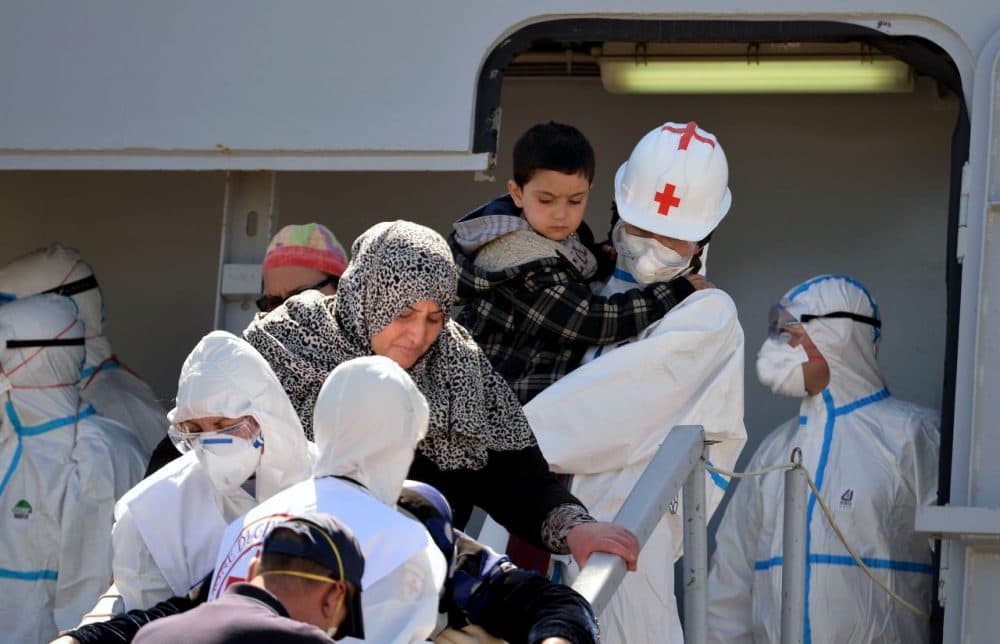Advertisement
Migrant Deaths In The Mediterranean: Why It's Gotten Worse
Resume
As survivors of last Sunday's shipwreck in the Mediterranean recover in Italy, European leaders are debating how the continent should deal with this crisis of people from Africa and beyond risking their lives to flee poverty and violence.
Sunday's boat sinking is being called the worst ever in the Mediterranean, and Malta's Prime Minister Joseph Muscat called the tragedy, in which hundreds drowned, a "game changer."
Alexander Betts, head of the Refugee Studies Centre at Oxford University, joins Here & Now's Robin Young to discuss how it came to this, and why so many more migrants are dying in the waters between Africa and Europe.
Guest
- Alexander Betts, director of the Refugee Studies Centre at Oxford University and an associate professor of refugee and forced migration studies. He tweets @alexander_betts.
This segment aired on April 22, 2015.